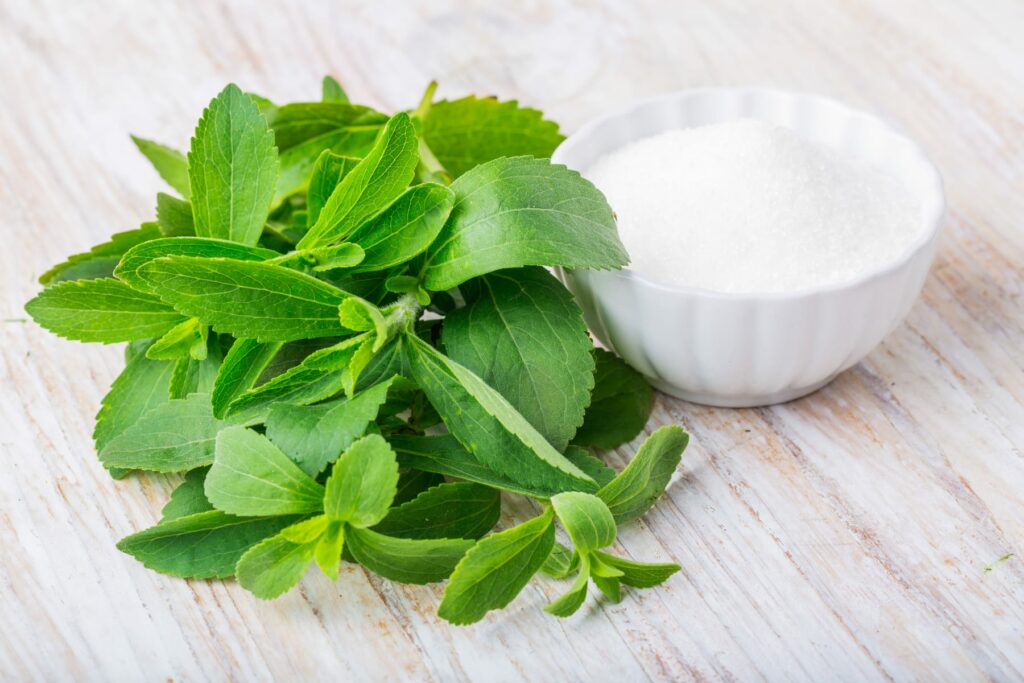Fasting has gained popularity for its potential health benefits, including weight loss, improved metabolic health, and longevity. However, the use of sweeteners, such as stevia, during fasting periods raises questions about its impact on fasting physiology. Let’s delve into the details to determine whether stevia breaks a fast.
Understanding Stevia
Stevia is a natural, zero-calorie sweetener derived from the leaves of the Stevia rebaudiana plant. It contains compounds called steviol glycosides, primarily stevioside and rebaudioside, which provide sweetness without adding calories or carbohydrates. Stevia is commonly used as a sugar substitute in foods and beverages, particularly in products marketed as low-calorie or sugar-free.
Impact of Stevia on Fasting
The primary goal of fasting is to abstain from consuming calories and macronutrients, such as carbohydrates, protein, and fat, for a specified period. Theoretically, consuming stevia should not break a fast, as it contains negligible calories and does not affect blood sugar or insulin levels in most individuals. However, some experts argue that the taste of sweetness from stevia may stimulate the cephalic phase insulin response (CPIR), a hormonal response triggered by the anticipation of food consumption.
Factors to Consider
Individual Response
Fasting is a highly individualized practice, and the impact of stevia on fasting physiology may vary from person to person. Some individuals may experience no adverse effects from consuming stevia during fasting, while others may prefer to avoid it altogether to maintain the physiological benefits of fasting.
Fasting Goals
The intended goals of fasting may influence whether stevia is considered acceptable during fasting periods. If the primary objective is to achieve autophagy, a cellular repair process that occurs during fasting, some proponents advocate for abstaining from all sweeteners, including stevia, to avoid potential disruptions to autophagy.
Practical Recommendations
Minimal Consumption
If you choose to consume stevia during fasting, do so sparingly and in small amounts to minimize the potential impact on fasting physiology. Consider using it as a flavor enhancer in beverages or recipes rather than consuming it in large quantities.
Monitor Response
Pay attention to how your body responds to stevia during fasting. If you notice any adverse effects, such as increased hunger or cravings, disrupted sleep, or fluctuations in blood sugar levels, consider eliminating stevia from your fasting protocol and reassessing your approach.
FAQs
Does stevia raise blood sugar levels?
Stevia does not typically raise blood sugar levels, as it does not contain carbohydrates or affect insulin secretion. It is considered safe for individuals with diabetes or those following a low-carbohydrate diet.
Can I use stevia if I’m fasting for weight loss?
While stevia is unlikely to significantly impact weight loss during fasting, it’s essential to consider overall dietary habits and calorie intake. Using stevia in moderation as part of a balanced fasting protocol is unlikely to hinder weight loss progress.
Does stevia affect ketosis during fasting?
Stevia is unlikely to affect ketosis, the metabolic state characterized by elevated ketone levels in the blood. Since stevia does not contain carbohydrates or impact insulin levels, it should not interfere with ketosis during fasting.
Can I consume stevia while intermittent fasting?
Many individuals incorporate stevia into their intermittent fasting regimen without experiencing adverse effects. However, it’s essential to monitor your body’s response and adjust your consumption accordingly based on your fasting goals and individual preferences.
Does stevia have any health benefits?
Stevia is considered safe for consumption and may offer potential health benefits, including weight management, blood sugar control, and dental health. Some research suggests that stevia may have antioxidant and anti-inflammatory properties, but further studies are needed to confirm these effects.
Are there any potential side effects of consuming stevia?
While stevia is generally well-tolerated, some individuals may experience gastrointestinal symptoms, such as bloating or diarrhea, with high doses. Additionally, some people may be sensitive to the taste of stevia or prefer the taste of other sweeteners.
Can I use stevia if I’m fasting for religious or spiritual reasons?
If fasting for religious or spiritual reasons, the use of stevia may depend on individual beliefs and practices. Consult with a religious or spiritual leader for guidance on whether stevia is permissible during fasting periods according to your faith tradition.
Conclusion
The question of whether stevia breaks a fast is a topic of debate among fasting enthusiasts and healthcare professionals. While stevia is unlikely to significantly impact fasting physiology due to its minimal calorie and carbohydrate content, individual responses may vary. If using stevia during fasting, do so sparingly and monitor your body’s response to ensure it aligns with your fasting goals and preferences. As with any dietary practice, it’s essential to prioritize overall health and well-being and adjust your approach accordingly based on individual needs and circumstances.

